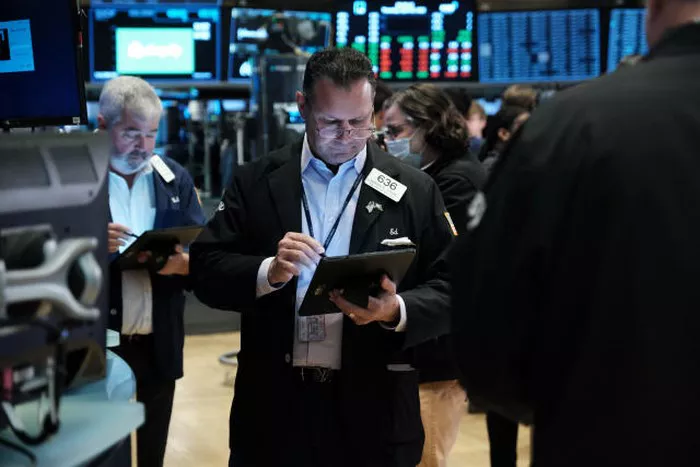Stock index futures are vital instruments in the world of finance, serving as a gateway for investors and traders to participate in the performance of entire stock markets or specific market sectors. These derivatives, commonly referred to as stock index futures, play a pivotal role in hedging, speculation, and portfolio diversification.
1. Understanding Stock Index Futures
Stock index futures are financial contracts that derive their value from an underlying stock market index, such as the S&P 500, Nasdaq Composite, or Dow Jones Industrial Average. Unlike individual stock investments, these futures contracts provide exposure to the broader market, allowing investors to speculate on or hedge against the future movements of an entire stock index. Stock index futures are standardized contracts with specific contract sizes, expiration dates, and tick sizes.
2. Key Characteristics of Stock Index Futures
To comprehend stock index futures fully, it is essential to grasp their fundamental characteristics:
Underlying Index: Stock index futures are based on an underlying stock market index, representing a basket of stocks from a specific market or sector.
Contract Size: Each stock index futures contract has a predetermined contract size, which determines the notional value of the contract. For example, one S&P 500 E-mini futures contract represents a fraction of the actual index value.
Expiration Date: Futures contracts have expiration dates, specifying when the contract terminates. Traders can choose from various contract months to suit their trading preferences.
Settlement Method: Stock index futures contracts can be settled through physical delivery or cash settlement, depending on the exchange and contract specifications.
3. The Role of Stock Index Futures
Stock index futures serve various essential functions in financial markets:
Risk Management: Investors use stock index futures to hedge existing portfolios against adverse market movements. By taking opposite positions in futures contracts, they can offset potential losses in their stock holdings.
Speculation: Traders engage in speculative activities using stock index futures to profit from anticipated market movements. They can take either long (buy) or short (sell) positions based on their market outlook.
Portfolio Diversification: Stock index futures provide an efficient way to diversify portfolios without having to purchase individual stocks. Investors can gain exposure to a broad market or sector through a single futures contract.
Price Discovery: Stock index futures prices are closely watched as leading indicators of market sentiment and expectations. They contribute to price discovery in the underlying index.
4. Determinants of Stock Index Futures Prices
The prices of stock index futures contracts are influenced by various factors:
Spot Index Price: The current level of the underlying stock index, known as the spot price, serves as a fundamental component in determining futures prices.
Interest Rates: Prevailing interest rates play a significant role. Higher interest rates tend to decrease futures prices, as they increase the cost of carrying the underlying assets.
Dividends: If the underlying index includes dividend-paying stocks, the expected dividend yield can affect futures prices. Higher expected dividends may increase futures prices.
Carrying Costs: Carrying costs encompass expenses associated with holding the underlying assets, including storage, financing, and insurance costs. These costs can influence futures prices.
5. Trading Stock Index Futures
Trading stock index futures involves several key steps:
Selecting a Broker: Traders must choose a reputable brokerage that offers access to the desired futures contracts and trading tools.
Margin Requirements: Understand the margin requirements associated with trading stock index futures. Margin is the collateral required to open and maintain positions.
Risk Management: Implement risk management strategies, such as setting stop-loss orders and position sizing, to protect your capital.
Market Analysis: Utilize technical and fundamental analysis to make informed trading decisions. Technical analysis involves studying price charts and patterns, while fundamental analysis considers economic and corporate data.
Choosing Contract Months: Select the appropriate contract month that aligns with your trading goals and time horizon.
6. Popular Stock Index Futures Contracts
Several well-known stock index futures contracts are actively traded in financial markets:
S&P 500 E-mini Futures (ES): These futures contracts track the performance of the S&P 500 Index, representing 500 leading U.S. companies.
Nasdaq 100 E-mini Futures (NQ): These contracts follow the Nasdaq 100 Index, which includes 100 non-financial companies listed on the Nasdaq Stock Market.
Dow Jones E-mini Futures (YM): These futures contracts mirror the performance of the Dow Jones Industrial Average, consisting of 30 significant U.S. companies.
Russell 2000 E-mini Futures (RTY): These contracts are based on the Russell 2000 Index, which represents small-cap U.S. stocks.
7. Risks Associated with Stock Index Futures Trading
Trading stock index futures carries inherent risks, including:
Leverage Risk: Leverage can amplify both gains and losses. Traders can lose more than their initial investment when trading futures contracts.
Volatility Risk: Stock index futures can be highly volatile, resulting in rapid price swings.
Margin Calls: If a trader’s account balance falls below the required margin level due to losses, they may receive a margin call, requiring additional funds to maintain their position.
Overnight Risk: Events that occur when markets are closed, such as geopolitical developments or earnings releases, can lead to significant price gaps when markets reopen.
Conclusion
Stock index futures are vital instruments that shape the dynamics of financial markets worldwide. They offer opportunities for hedging, speculation, and portfolio diversification, empowering traders and investors to navigate the complexities of the stock market. Understanding the functions of stock index futures, the factors influencing their prices, and the associated risks is crucial for anyone looking to engage in futures trading or incorporate these instruments into their investment strategies. Whether you are a seasoned trader or a novice investor, grasping the intricacies of stock index futures is an essential step toward success in the ever-evolving realm of finance.

